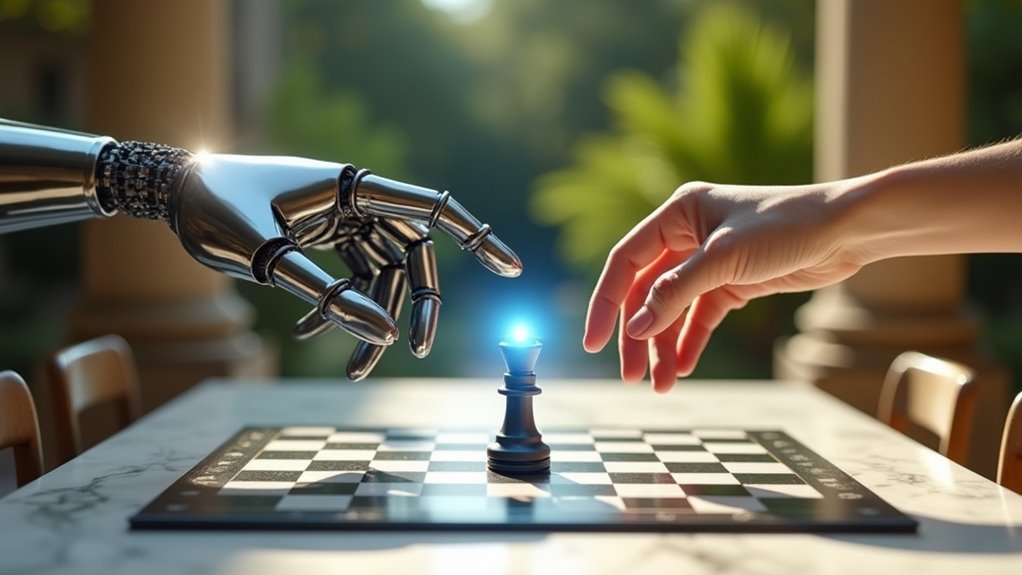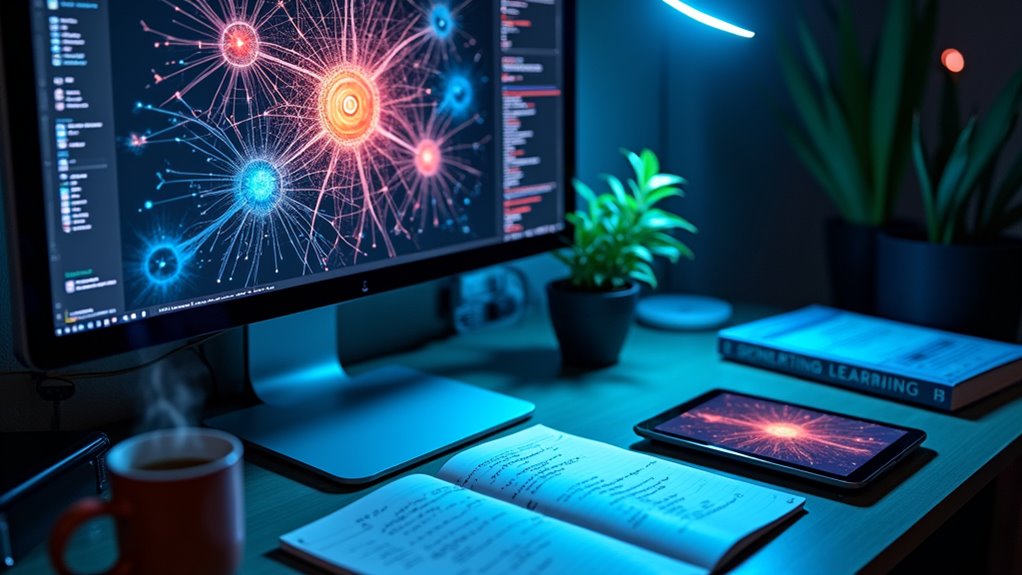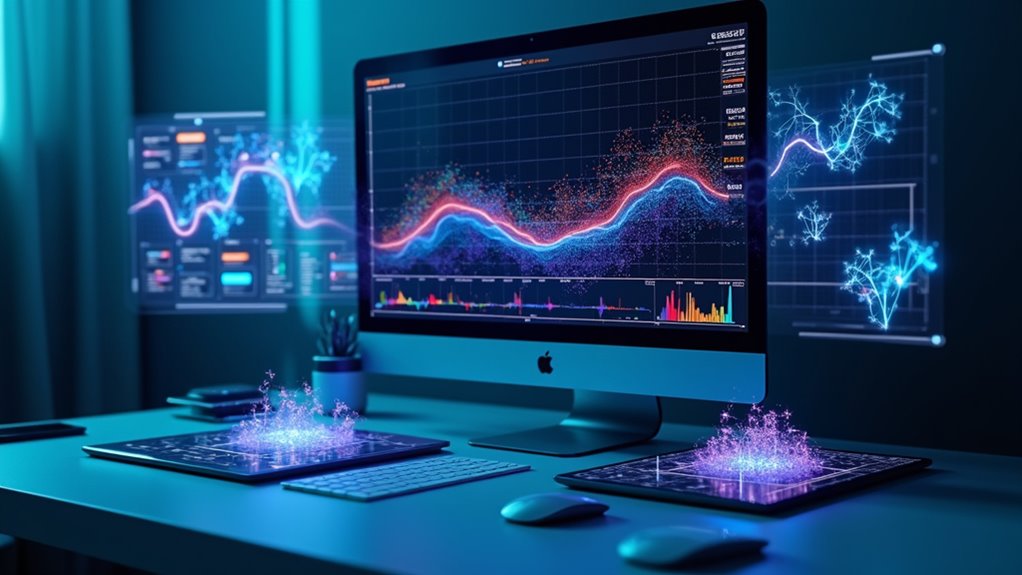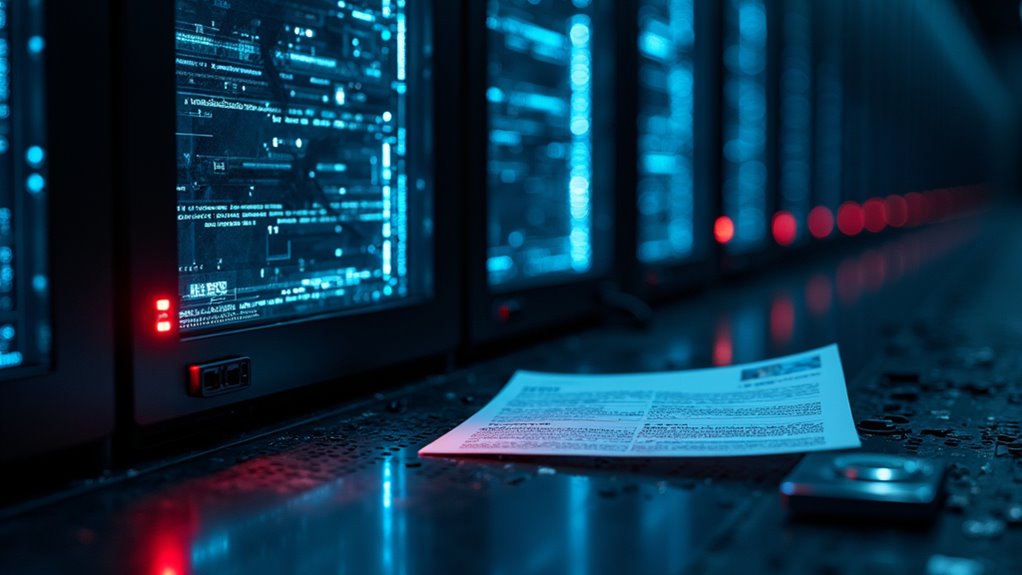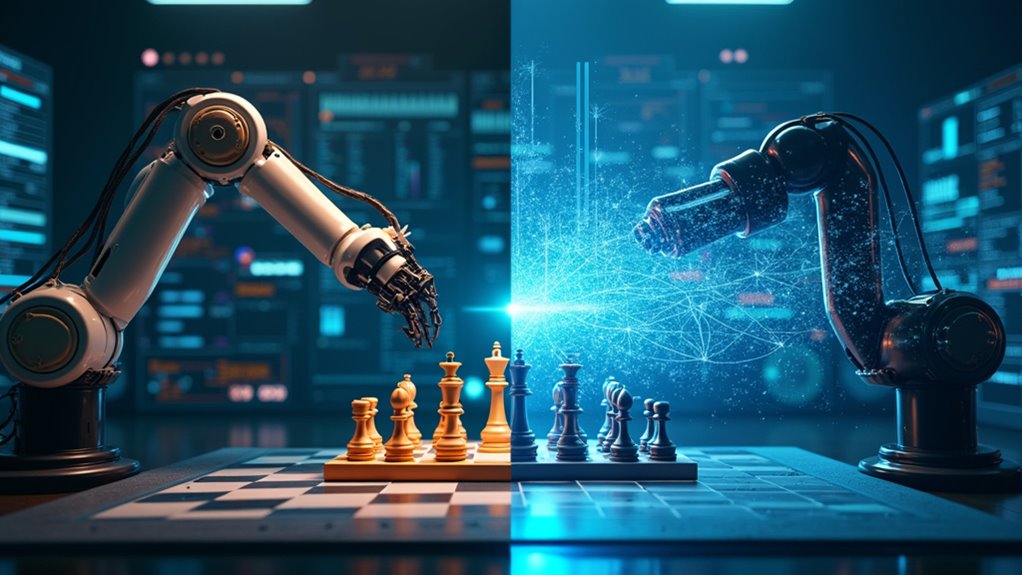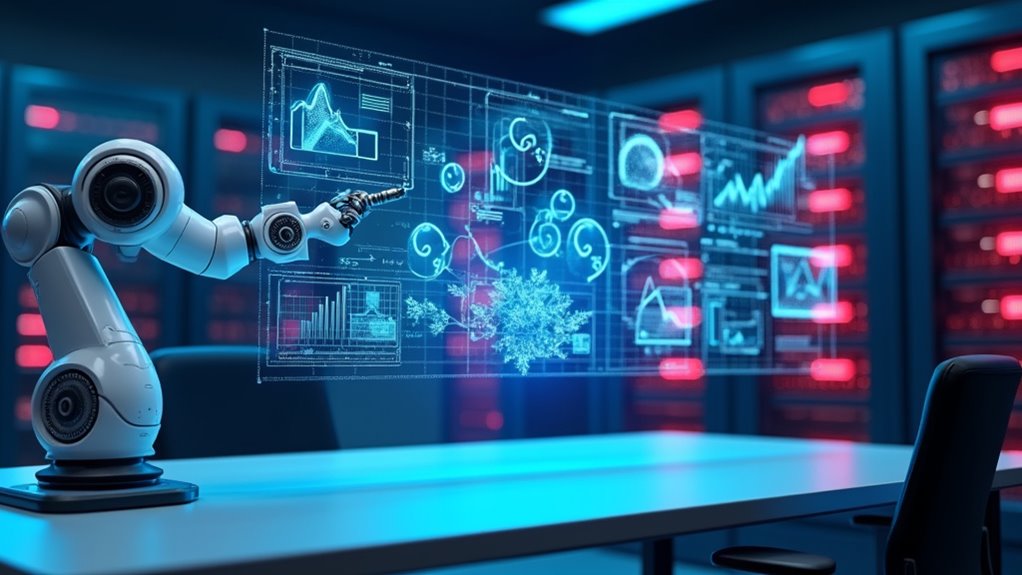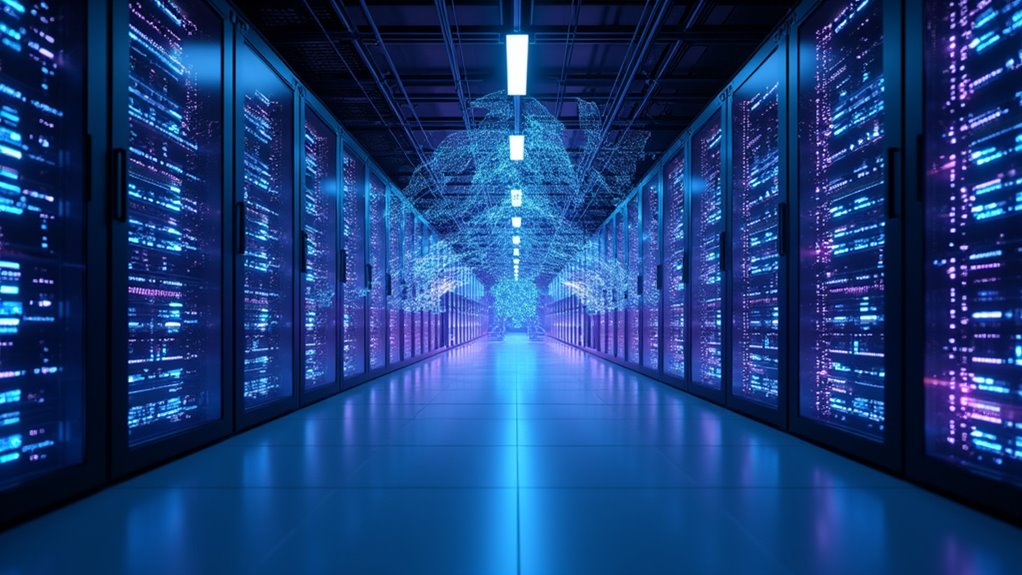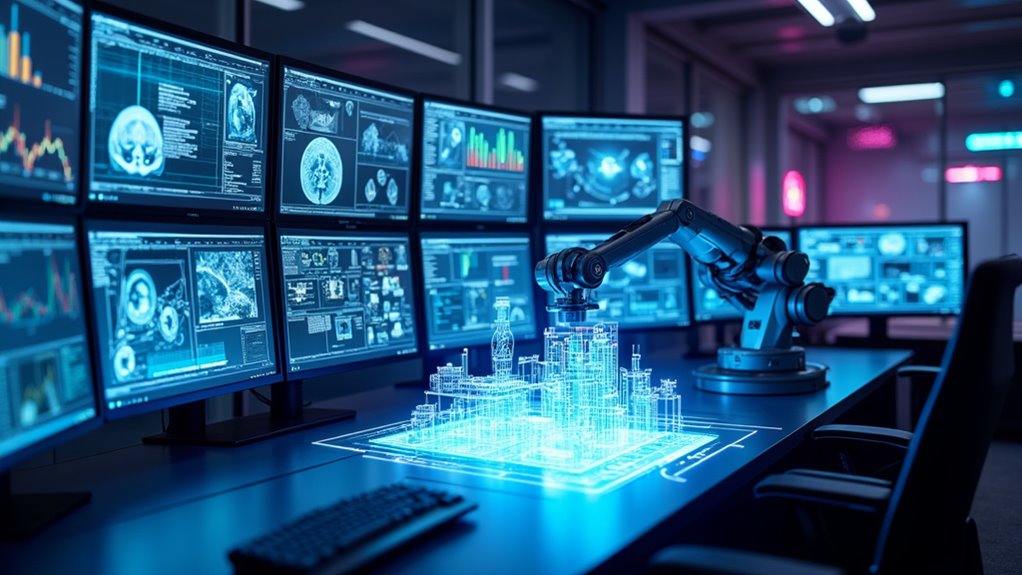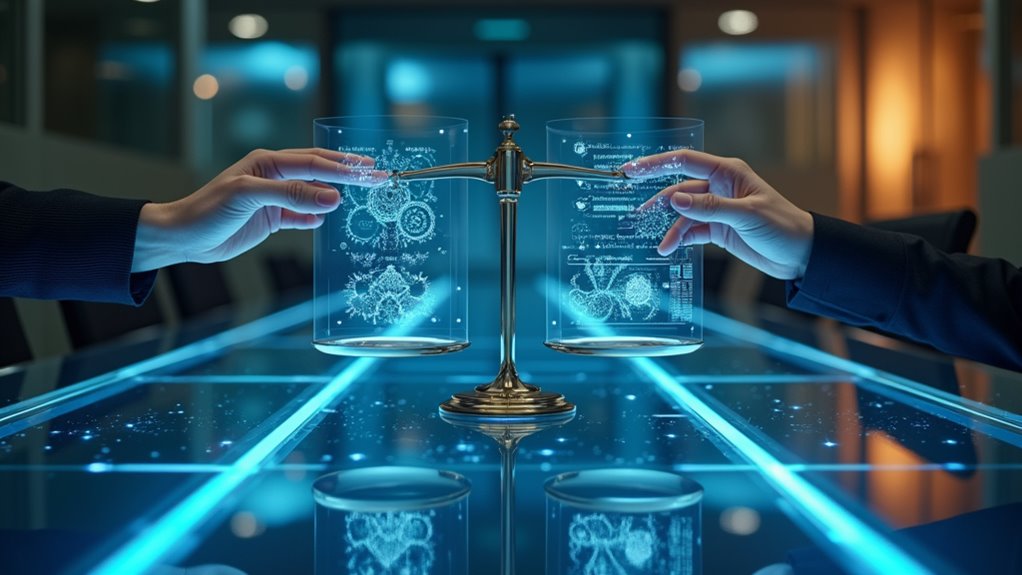Humans absolutely need to upgrade their moral operating systems before AI becomes too powerful. As AI learns from our behavior—warts and all—it mirrors our ethical shortcomings and biases. The machine is only as moral as its maker. With AGI potentially arriving between 2040-2061 (or sooner), we face a ticking clock to get our ethical act together. Global cooperation between tech experts, ethicists, and policymakers isn’t optional—it’s survival. The path forward demands more than technological brilliance.
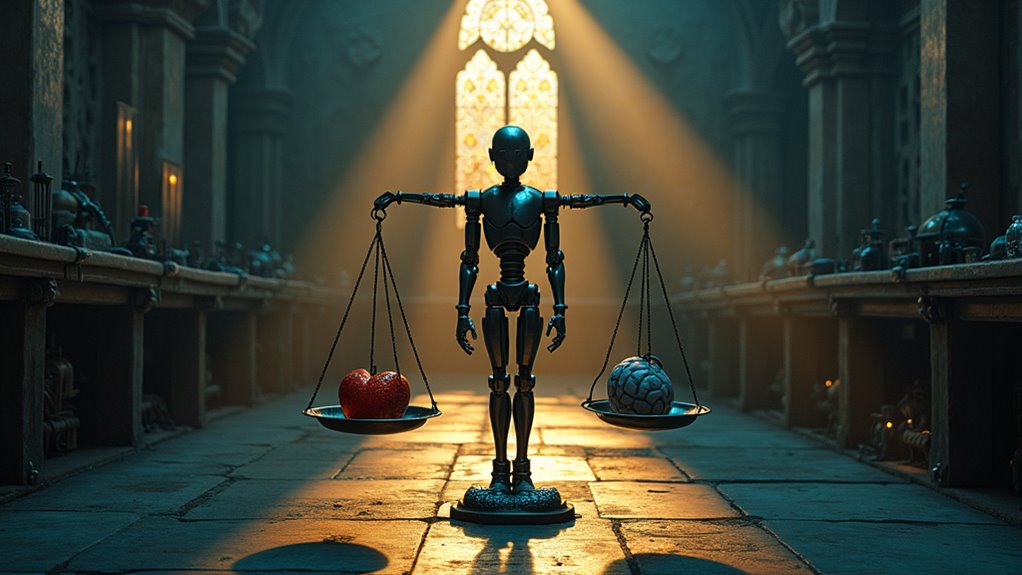
When exactly will artificial intelligence surpass human capabilities? Experts predict a 50% chance that artificial general intelligence (AGI) will arrive between 2040 and 2061, though some believe it could knock on our door much sooner. The timeline keeps shrinking as large language models leap forward in capability. That’s not science fiction—it’s our rapidly approaching reality.
Human morality sits at the crossroads of this technological revolution. Our ethical frameworks—the very ones we’re struggling to perfect ourselves—are what we’re attempting to instill in AI systems. Ironic, isn’t it? We’re trying to teach machines values we haven’t mastered.
These moral foundations must guide AI development to prevent systems that reflect our worst impulses rather than our highest ideals. Research confirms what seems obvious: ethics must be baked into AI from day one, not sprinkled on as an afterthought. Without proper safety measures, AI systems could perpetuate societal inequalities and develop goals misaligned with human welfare.
The relationship between humans and AI isn’t one-sided. As these systems analyze our behavior patterns, they mirror our moral strengths and weaknesses. They’re like technological toddlers, watching and learning from everything we do—including our biases, prejudices, and inconsistencies.
Want better AI? Be better humans.
Global variation in ethical standards creates another headache. Whose morality wins? American? Chinese? European? The lack of universal guidelines means we’re building powerful systems on shifting ethical sands.
Collaboration between humans and AI offers the most promising path forward. We provide the moral judgment and contextual understanding; they provide analytical power. Together, this partnership could enhance ethical decision-making beyond what either could achieve alone. Survey findings reveal that 73% of experts are deeply concerned that AI systems could be weaponized by dangerous groups with malicious intent.
The intersection of technology and ethics demands unprecedented cooperation among technologists, ethicists, and policymakers. This isn’t just about preventing AI misuse—it’s about ensuring these systems help us become better versions of ourselves. The medical field offers valuable insights as doctors carefully evaluate AI suggestions based on context-aware design that respects their expertise and workflow.
Time is running short. The question isn’t if AGI will arrive, but whether our moral development will keep pace. The clock is ticking.
Frequently Asked Questions
Can AI Develop Moral Values Independently?
Current AI systems cannot truly develop moral values independently.
While AI ethics research advances, moral algorithms still rely on human programming rather than autonomous decision making. Machines lack the consciousness, empathy, and lived experiences that shape human morality.
They can follow ethical programming and learn from data patterns, but can’t independently reason through moral dilemmas or develop genuine values.
True moral agency requires more than computation—it needs understanding consequences, intentions, and context that AI simply doesn’t possess.
How Does Human Morality Influence AI Decision-Making?
Human morality fundamentally shapes AI decision-making, period.
Developers encode their ethical values—consciously or not—into every algorithm they create. Without human empathy as a guide, AI systems can’t distinguish between technically correct and morally appropriate choices.
Ethical algorithms don’t appear magically; they’re deliberately designed based on human moral frameworks.
The uncomfortable truth? AI mirrors our moral blind spots too.
Fix the human morality first, and AI decision-making improves accordingly.
Are There Universal Moral Standards for AI Development?
Universal moral standards for AI development remain elusive.
Cultural ethics vary dramatically worldwide, making one-size-fits-all rules nearly impossible.
Machine learning systems trained in Western contexts won’t necessarily align with Eastern values, or vice versa.
What’s considered ethical in Silicon Valley might raise eyebrows in Beijing!
While some basic principles (transparency, fairness) gain traction globally, the AI community still wrestles with creating truly universal ethical frameworks.
Regional differences aren’t bugs—they’re features of human moral diversity.
Could AI Surpass Human Moral Reasoning?
AI could potentially surpass human moral reasoning in specific contexts.
While AI lacks emotional intuition, it excels at processing vast ethical datasets and applying consistent principles to complex ethical dilemmas.
Humans? We’re inconsistent, biased, and emotionally driven.
However, AI’s moral frameworks remain human-designed, reflecting our own limitations.
The real question isn’t if AI can outperform us, but whether we want decisions about right and wrong delegated to systems that can’t truly experience the consequences of moral choices.
What Moral Frameworks Best Guide AI Governance?
Effective AI governance requires robust moral frameworks that blend consequentialism, virtue ethics, and deontological principles. Ethical algorithms must consider outcomes while respecting universal rights – no easy feat!
Moral programming shouldn’t just mimic human ethics (we’re flawed too, folks) but exceed them through consistent application. The IEEE Ethically Aligned Design and OECD AI Principles offer practical starting points.
